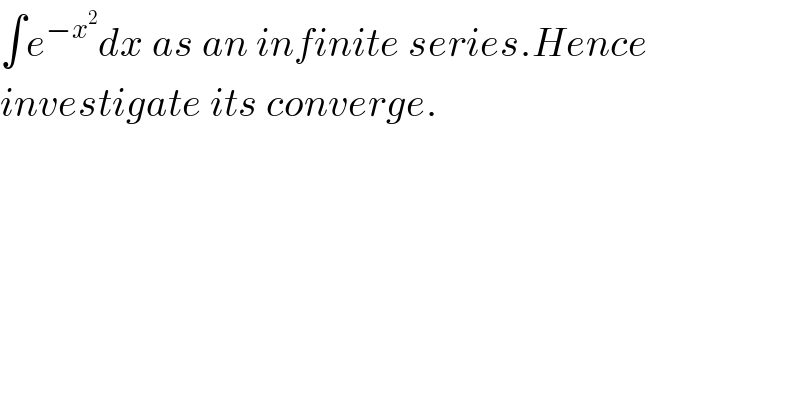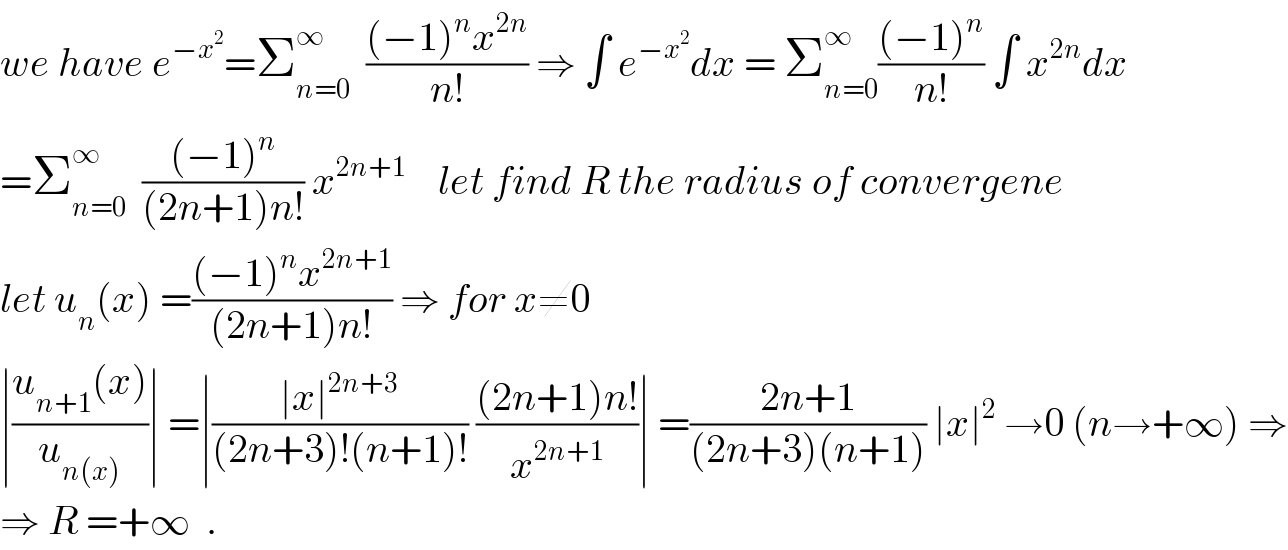
Question and Answers Forum
Question Number 56060 by necx1 last updated on 09/Mar/19

Commented by maxmathsup by imad last updated on 09/Mar/19

Commented by necx1 last updated on 09/Mar/19

Commented by maxmathsup by imad last updated on 09/Mar/19

| ||
Question and Answers Forum | ||
Question Number 56060 by necx1 last updated on 09/Mar/19 | ||
 | ||
Commented by maxmathsup by imad last updated on 09/Mar/19 | ||
 | ||
Commented by necx1 last updated on 09/Mar/19 | ||
 | ||
Commented by maxmathsup by imad last updated on 09/Mar/19 | ||
 | ||